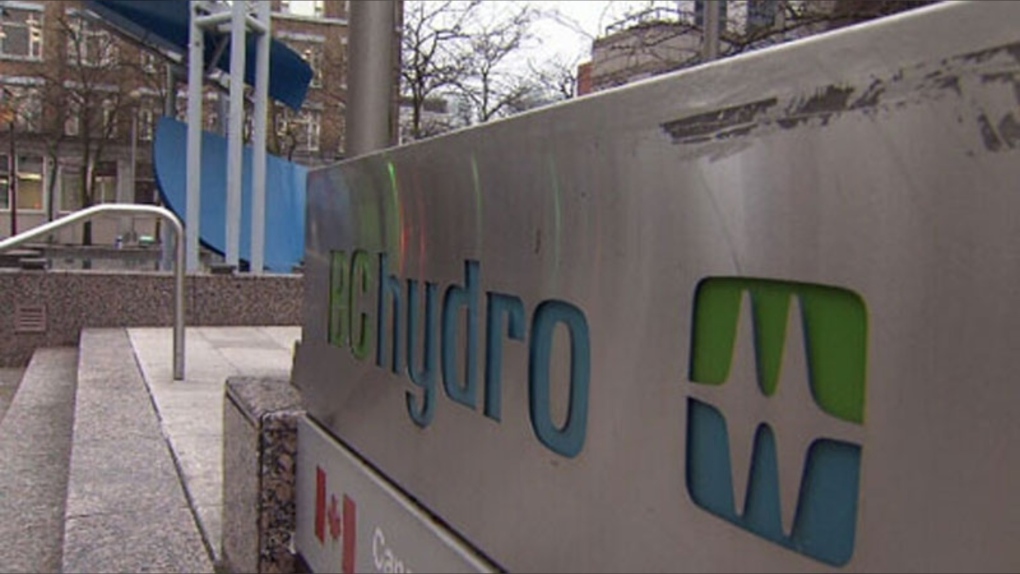B.C. residents to pay more for hydro starting April 1
 (File photo)
(File photo)
British Columbia residents will pay an average of $2 more per month for hydro power starting Saturday.
BC Hydro says effective April 1, residential electricity rates will rise by two per cent, or about $2 per month on average, following an interim rate-hike approval by the B.C. Utilities Commission.
The rate increase is part of a three-year rate application that, if approved by the BCUC, will still mark a period of the lowest rate increases in B.C. over the past 15 years, according to a statement Friday from the utility.
BC Hydro reduced its residential rates by 1.4 per cent last year. In 2024, the Crown utility expects to increase its rates again by 2.7 per cent.
"Over the three-year period, it works out to an average rate increase of 1.1 per cent per year," the statement from BC Hydro said. "This is below forecast inflation in B.C. over this period."
The utility says its electricity rates remain among the lowest in North America while still supporting electrification investments, cybersecurity, vegetation management and new projects that decrease B.C.'s dependence on fossil fuels.
"BC Hydro encourages customers to reach out to us to come up with a plan if they are having trouble paying their BC Hydro bill," the utility said.
The power company offers grants of up to $600 through its Customer Crisis Fund for those in temporary financial crisis, as well as flexible, interest-free payment plans that allow a customer to defer a payment or pay the overdue amount over time.
More information on the billing relief program is available here.
CTVNews.ca Top Stories

Which Canadian cities have the highest and lowest grocery prices?
Where you live plays a big factor in what you pay at the grocery store. And while it's no secret the same item may have a different price depending on the store, city or province, we wanted to see just how big the differences are, and why.
'State or state-sponsored actor' believed to be behind B.C. government hacks
The head of British Columbia’s civil service has revealed that a “state or state-sponsored actor” is behind multiple cyber-security incidents against provincial government networks.
Swarm of 20,000 bees gather around woman’s car west of Toronto
A swarm of roughly 20,000 bees gathered around a woman’s car in the parking lot of Burlington Centre.
Mother assaulted by stranger while breastfeeding baby in her car: Vancouver police
A person was arrested in East Vancouver Thursday after allegedly entering a car while a mother was breastfeeding her four-month-old boy.
More than half the Canadians once detained in Syrian camps for suspected ISIS family members have returned home
A total of 29 Canadians have been freed from detention camps in northeast Syria and brought back to Canada since human rights advocates began lobbying for their release years ago.
Rare severe solar storm Friday could bring spectacular aurora light show across Canada
A rare and severe solar storm is expected to bring spectacular displays of the northern lights, also known as aurora borealis, across much of Canada and parts of the United States on Friday night.
Canada abstains from Palestinian UN membership vote but supports two-state solution
Canada was one of 25 countries that abstained from a United Nations vote on Palestinian membership that passed with overwhelming support on Friday.
Amish youth experience a rite of passage called Rumspringa. It’s not what you might think
The idea of “Rumspringa” has a specific spot in the American imagination. A rite of passage for young people in some Amish communities, Rumspringa is seen by most outsiders as a wild time away from strict Amish rules, when teenagers can experiment with the modern vices of the world.
Djokovic needs medical attention after getting knocked on the head by a water bottle at Italian Open
Novak Djokovic needed medical attention after apparently getting knocked on the head by a water bottle after a win at the Italian Open on Friday.
































